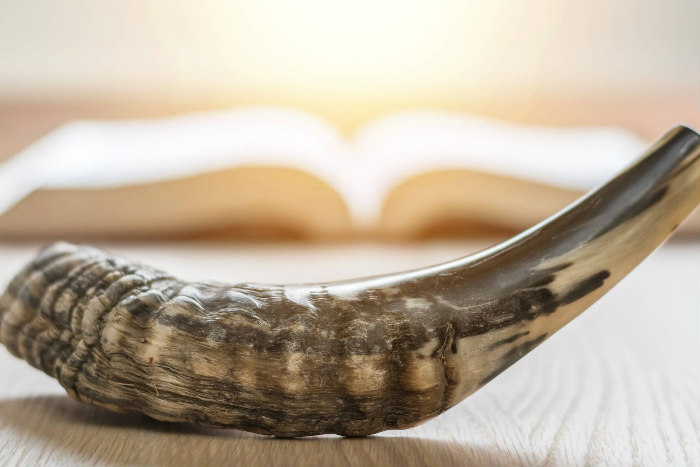
Every year, we go to synagogue or have a meal with our family to celebrate Rosh HaShanah, the Jewish new year. This holiday is one of our holiest days – and it’s a sweet, celebratory day, too! But our tradition of eating apples and honey at the new year is made even sweeter when we understand why, exactly, we’re celebrating.
Here are a few ways to engage with and Jewish traditions to understand the holiday a bit better. These readings and activities also will give you a chance to reflect as we move toward Yom Kippur, the Day of Atonement.
Learning
-
Day 1, Genesis 22:1-19
This Torah portion is commonly known as the . In these terse and tense verses, the subject matter touches upon God, the man tested by God, the nature of faith (belief in God), and the demands faith may make of us. God calls upon Abraham to sacrifice his son, Isaac, as a supreme test of his faith in God. Abraham, God’s loyal servant, agrees to do it!
Just as Abraham is about to offer his son up as a sacrifice, an angel calls out to him, instructing him not to harm the boy, and Abraham sacrifices a ram instead. For ancient readers, this story may have served as a rejection of human sacrifice, a practice of ancient Israel’s neighbors. Modern readers are called upon to consider our own tests and sacrifices. -
Day 2, Genesis 1: 1-2, 3
The power of these first words of the Torah still speak to us. In these verses, we see the grand plan for the world. Creation does not happen by chance or by accident. Each day builds on the work of the previous day. Each day brings new creation.
The Bible mentions the number seven more than 500 times. It is on the seventh day that we receive that most sacred of gifts, Shabbat. But we know that the work of creation is not finished. We need only look at the world around us to see how much more needs to be done! We are called upon to partner with God to continue this sacred work.
(Rosh HaShanah is mentioned in the Torah in several places: It is instituted in Leviticus 23:24-25 and Numbers 29:1-2.)
Activity 1: The Modern-Day Pact
In the Torah portion, we are instructed to make seven sacrifices. As a modern-day alternative, make a pact to do seven activities together with your family or friends.
For example, you might choose to play seven games as a family. Discover a new game, like Settlers of Catan (ages 10+) or Bananagrams, or play a favorite classic, like Go Fish and Candyland. If you don't want to purchase a new game, try to improve an activity. Another option: Prepare seven different baked goods! Choose from our round-up of Rosh HaShanah recipes.
Activity 2: Experience Torah
Parashat Emor (Leviticus 21: 1-24:23) is one of the places in the Torah that mentions the High Holidays.
- Listen: Teens rap Parashat Emor.
As you listen, think about the connection between celebration and sacrifice. We usually think about sacrifice for Yom Kippur, since in modern times, we fast in place of making sacrifices. However, sacrifice has many meanings in our day.
Discuss with your family:
- What are some modern-day sacrifices we make?
- How do holidays and sacrifices connect, in a metaphorical sense today? Why might we put them together?
Activity 3: Do you 10Q?
Before Yom Kippur, the holiday during which we repent, we want to think about what we can improve for the year ahead. 10Q is an online tool for reflecting during the 10 days between Rosh HaShanah and Yom Kippur. When you submit your answer, 10Q stores it in an online vault and sends you the answers next year at Rosh HaShanah. From there, you can reflect on how your answers have changed or stayed the same, as well as form new opinions based on the year just ended.
